 | |
| Company type | Private |
|---|---|
| Industry | Video games |
| Founded | 2010 |
| Founder | Steve Piggott |
| Headquarters | , Canada |
Key people | Steve Piggott (president) |
| Products | |
| Website | tornbanner |
Torn Banner Studios Inc. is a Canadian video game developer based in Toronto.
 | |
| Company type | Private |
|---|---|
| Industry | Video games |
| Founded | 2010 |
| Founder | Steve Piggott |
| Headquarters | , Canada |
Key people | Steve Piggott (president) |
| Products | |
| Website | tornbanner |
Torn Banner Studios Inc. is a Canadian video game developer based in Toronto.
Torn Banner Studios was founded in 2010 by Steve Piggott of Team Chivalry, the development team of Age of Chivalry , a 2007 mod for Half-Life 2 . [1] The studio's first game was Chivalry: Medieval Warfare; after a successful kickstarter campaign raising $85,934 [2] [3] [4] it was released independently in October 2012. [5] The game received the 2012 "Indie of the Year" award from Indie DB. [6] Sega released Torn Banner's NeverMine in July 2016 as part of the Help: The Game collection, with proceeds going to the War Child charity. [7] [8]
Torn Banner was affected by the 2023–2024 video game industry downturn and announced it was laying off staff in December 2024, but remained committed to shipping No More Room in Hell 2 out of early access and to a full release. [9]
| Year | Title | Platform(s) | Publisher(s) |
|---|---|---|---|
| 2012 | Chivalry: Medieval Warfare | Microsoft Windows, OS X, Linux, PlayStation 3, PlayStation 4, Xbox 360, Xbox One | Torn Banner Studios, Activision |
| 2016 | NeverMine | Microsoft Windows | Sega |
| 2017 | Mirage: Arcane Warfare [10] | Microsoft Windows | Torn Banner Studios |
| 2021 | Chivalry 2 [11] | Microsoft Windows, PlayStation 4, PlayStation 5, Xbox One, Xbox Series X/S | Tripwire Interactive |
| 2024 | No More Room in Hell 2 [12] | Windows | Torn Banner Studios |
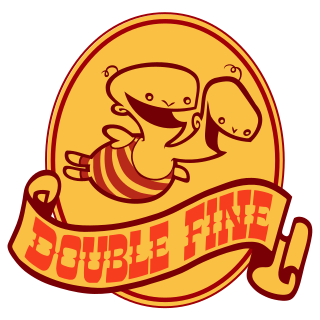
Double Fine Productions, Inc. is an American first-party video game developer of Xbox Game Studios based in San Francisco, California. Founded in July 2000 by Tim Schafer shortly after his departure from LucasArts, Double Fine's first two games – Psychonauts and Brütal Legend – underperformed publishers' expectations despite critical praise. The future of the company was assured when Schafer turned to several in-house prototypes built during a two-week period known as "Amnesia Fortnight" to expand as smaller titles, all of which were licensed through publishers and met with commercial success. Schafer has since repeated these Amnesia Fortnights, using fan-voting mechanics, to help select and build smaller titles. Double Fine is also credited with driving interest in crowdfunding in video games, having been able to raise more than US$3 million for the development of Broken Age, at the time one of the largest projects funded by Kickstarter, and more than US$3 million for the development of Psychonauts 2.
Obsidian Entertainment, Inc. is an American video game developer based in Irvine, California and part of Xbox Game Studios. It was founded in June 2003, shortly before the closure of Black Isle Studios, by ex-Black Isle employees Feargus Urquhart, Chris Avellone, Chris Parker, Darren Monahan, and Chris Jones.

inXile Entertainment, Inc. is an American video game developer and a studio of Xbox Game Studios based in Tustin, California. Specializing in role-playing video games, inXile was founded in 2002 by Interplay co-founder Brian Fargo. The studio produced the fantasy games The Bard's Tale and Hunted: The Demon's Forge, along with various games for Flash and iOS such as Fantastic Contraption in its first decade of development. In 2014, inXile released the post-apocalyptic game Wasteland 2, following a successful Kickstarter campaign. Following the game's critical success, the studio went on to raise a then-record US$4 million on Kickstarter to develop Torment: Tides of Numenera, a spiritual successor to Interplay's Planescape: Torment. The studio was purchased by Microsoft and became part of Xbox Game Studios in 2018, just as they were developing Wasteland 3, which they released in 2020. The studio is currently developing Clockwork Revolution for Windows and Xbox Series X/S.

Outerlight Limited was a British video game developer based in Edinburgh. The company was incorporated by Christopher "Chris" Peck, Ailsa Jeannette Bates and Edward "Ed" Wilson, at the United Kingdom's Companies House, on 10 March 2003. Their first game was The Ship, a mod for Half-Life, released for free in 2004. The game was reworked as a standalone title, under the name The Ship: Murder Party, and released commercially, independently via Steam, in July 2006. Peck described the time of The Ship's development as "a costly and soul destroying two years chasing publishing deals and failing". Retail versions of the game were distributed by Merscom and Mindscape in North America and Europe, respectively.
Age of Chivalry is a multiplayer-focused total conversion modification for Valve's Half-Life 2 using the Source engine. Founded by Rickard Drakborn, Jeff Simmons and Scott Chipman, and developed by a group of independent developers called Team Chivalry, the mod features a medieval theme and aims to provide enjoyable close-combat battles.

Chivalry: Medieval Warfare is a multiplayer-focused hack and slash video game developed by Torn Banner Studios as their first commercial title. It was released on October 16, 2012, for Windows. The game is set in a fictional setting. The developers had confirmed that the game would be PC exclusive initially, but in October 2014, they confirmed that the game would be coming to PlayStation 3 and Xbox 360 in December 2014.

No More Room in Hell is a cooperative first person survival horror video game, created by Matt "Maxx" Kazan and initially developed as a modification on Valve's Source game engine. Set in a zombie apocalypse, the player assumes the role of one of eight remaining survivors, with a focus on co-operation and survival. The game can be played through "Objective" or "Survival" mode. It is heavily inspired by George A. Romero's Living Dead series, with the title being a reference to Dawn of the Dead, specifically the line "When there's no more room in hell, the dead will walk the earth.", and some characters being references to other films such as American Psycho and The Big Lebowski.

The Banner Saga is a tactical role-playing video game developed by Stoic and published by Versus Evil. It was released for personal computers and mobile phones in 2014, for PlayStation 4 and Xbox One in 2016 and for Nintendo Switch in 2018.
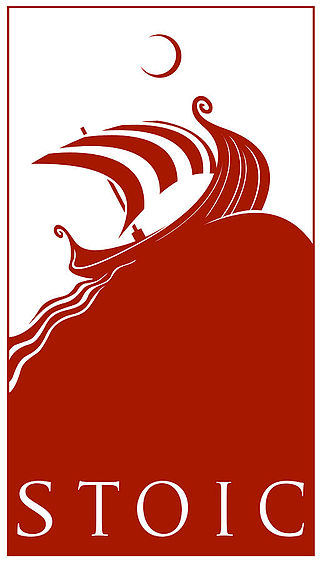
Stoic LLC is a video game developer based in Austin, Texas. Founded by three ex-BioWare staff in early 2012, Stoic is most known for developing the tactical role-playing game The Banner Saga (2014) and its sequels, The Banner Saga 2 (2016) and The Banner Saga 3 (2018).

Vlambeer is a Dutch independent video game developer based in Utrecht. Founded in 2010, the studio was composed of Rami Ismail and Jan Willem Nijman. The studio is known for the games Super Crate Box (2010), Serious Sam: The Random Encounter (2011), Ridiculous Fishing (2013), Luftrausers (2014), and Nuclear Throne (2015), as well as for their stand against video game cloning.

Black Forest Games GmbH is a German video game developer based in Offenburg. The company was founded in July 2012 by a team of 40 staff members, including chief executive officer Andreas Speer, previously employed by Spellbound Entertainment, which filed for insolvency earlier that year. As of August 2017, it is a subsidiary of THQ Nordic. As of August 2024, the company employs 50 people.
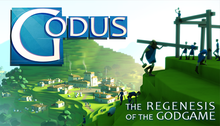
Godus is a god video game developed by 22cans and published by DeNA. The company launched a Kickstarter campaign to raise funds and met their funding goal on 20 December 2012. Godus was designed by Peter Molyneux, who described it as the spiritual successor to his earlier creation, Populous. A real-time strategy, combat game spin-off, Godus Wars, was released in 2016. While the mobile versions of Godus continue to be updated, the PC editions of both games never left Steam Early Access, and are no longer available for purchase on the Steam store.
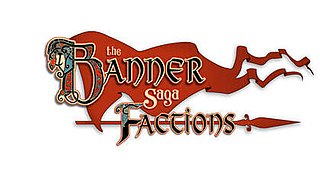
The Banner Saga: Factions is a free-to-play multiplayer fantasy tactical role-playing video game, developed by Stoic as a spinoff of The Banner Saga and published by Versus Evil. It was released for personal computers in 2013.
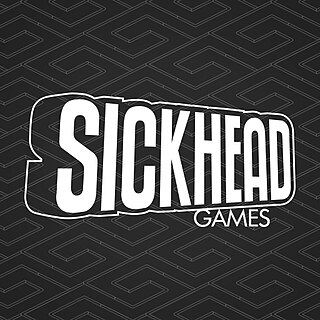
Sickhead Games, LLC is an American independent game development studio founded in 2002. It is best known for its multiplatform turn-based strategy game ARMED!, its involvement with the MonoGame framework and Torque series of game engines, and the development of several PlayStation 4/5, PlayStation Vita, Xbox One, and Nintendo Switch ports of indie games including TowerFall Ascension, Stardew Valley, Darkest Dungeon, Octodad: Dadliest Catch, Slay the Spire, and Axiom Verge. The studio has updated classic console and PC games from the late 1990s and early 2000s, including ExZeus, Enclave, and Grandia, to run on modern gaming systems.

Tabletop Simulator is an independent video game that allows players to play and create tabletop games in a multiplayer physics sandbox. Developed by Berserk Games as their first title after a successful crowdfunding campaign in February 2014, the game was released in June of the following year.

Dyscourse is a survival adventure video game developed and published by Owlchemy Labs. It was released on March 25, 2015 for Windows, OS X, and Linux. The game has he player take on the role of Rita, a barista stuck on a desert island after a plane crash. Along with five others, Rita has to lead the group to survive. The game was funded by a Kickstarter campaign, raising over $40,000 from 1,816 backers. Inspirations for the video game are The Oregon Trail, tabletop role-playing game Werewolf: The Apocalypse, and television series Lost.

Serellan LLC is an American video game developer founded in 2011 by Christian Allen. The company has released one video game currently, Takedown: Red Sabre for Microsoft Windows and Xbox Live Arcade. Their second title, EPSILON, is currently on Steam Early Access.

Chivalry 2 is a 2021 multiplayer hack and slash action video game developed by Torn Banner Studios and published by Tripwire Interactive. The sequel to Chivalry: Medieval Warfare (2012), the game was released on June 8, 2021, for Windows, PlayStation 4, PlayStation 5, Xbox One and Xbox Series X and Series S.

Hell Let Loose is a 2021 multiplayer tactical first-person shooter developed by Expression Games and Cover 6 Studios, and published by Team17. Players fight in iconic battles of the Western, North African and Eastern Fronts of World War II at the platoon level.